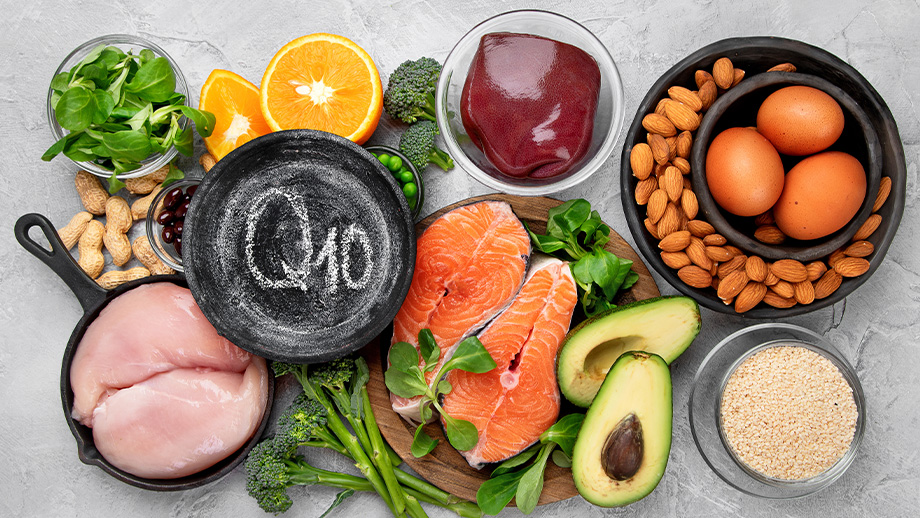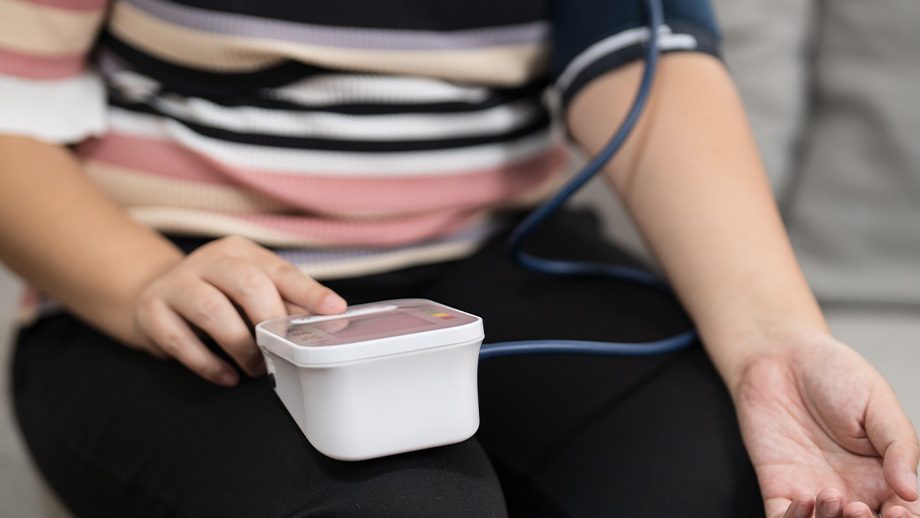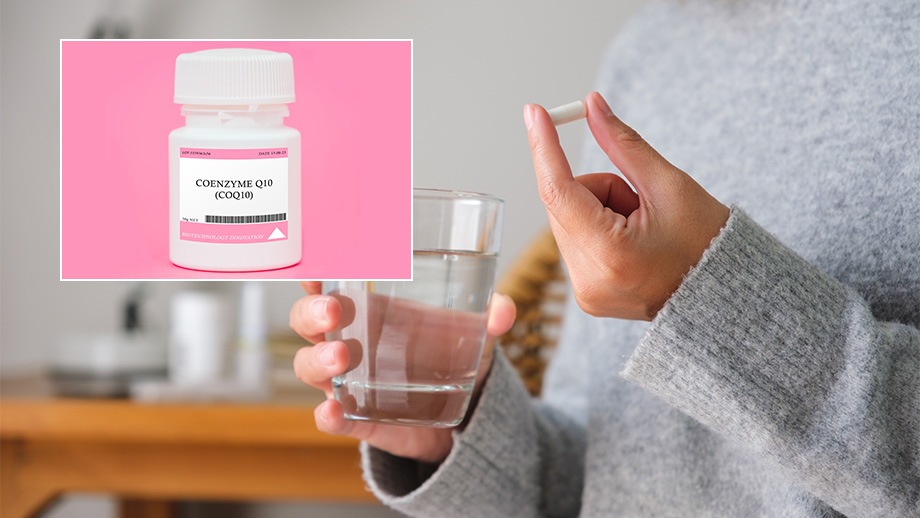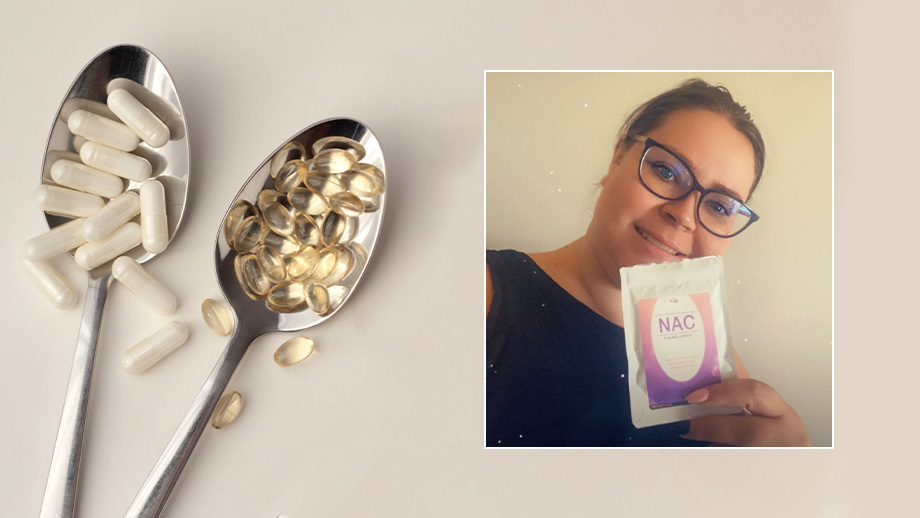You’ll find many supplements to improve your PCOS. One emerging supplement is Coenzyme Q10, or simply CoQ10, to help with energy, hormonal balance, insulin sensitivity, and more.
Polycystic Ovary Syndrome (PCOS) is a complex hormonal disorder. Common symptoms include irregular menstrual cycles, high androgen (male hormones) levels, and multiple small cysts on the ovaries. While we still don’t know the exact cause of PCOS, there is growing interest in the role of CoQ10 in managing this condition.
Today, we’ll explore what CoQ10 is and its potential benefits for those with PCOS.
What Is CoQ10?
Your body naturally produces the compound Coenzyme Q10. But it is also a fat-soluble vitamin. It helps produce energy. Just like how a car needs fuel to run, your cells need energy to do all the things they do every day.
Now, inside your cells are the mitochondria, the powerhouse of the cell. It takes nutrients from your food and turns them into a special energy molecule called ATP (Adenosine Triphosphate).
CoQ10 acts like a key player in the mitochondria’s energy-making process. It helps transport electrons between different parts of the process. This electron transport chain is how your cells create ATP, the energy currency of your body.
CoQ10 is essential because it keeps your cells running smoothly and protects them from damage. It’s found in various parts of your body, including the heart, liver, and muscles, where a lot of energy is needed.
Now, sometimes, your body might not make enough CoQ10, or you might need a bit more due to certain health conditions or as you age. That’s when CoQ10 supplements can come in handy. They provide that extra boost to keep your energy factory running efficiently and your cells well-protected. But what does it do for PCOS?
Is Coenzyme Q10 an Antioxidant?
CoQ10 isn’t just about making energy; it’s also an antioxidant. Imagine it as a little shield inside your cells. It helps protect them from troublemakers called free radicals. If left unchecked, these free radicals can damage your cells and even your DNA.
CoQ10 steps in to neutralize these troublemakers by giving them an extra electron. This calms them down and stops them from causing havoc. So, CoQ10 defends your cells from harm, including the ovaries and your brain.
What Food Contains CoQ10?

Foods Containing CoQ10
Your body naturally produces Coenzyme Q10. However, you can also find it in small amounts in food. Some examples include fatty fish, such as salmon, trout, mackerel, and sardines.
Meats like liver, kidney, beef, chicken, and pork have small amounts. Legumes, nuts, seeds, whole grains, eggs, and certain oils also have CoQ10.
Additionally, you can get it in some fruits and vegetables, including broccoli, cauliflower, spinach, strawberries, and oranges. Incorporating these foods into a balanced PCOS diet provides a great source of CoQ10. However, the levels found in these foods may not be sufficient for everyone. Thus, supplementation may help.
How Does CoQ10 Improve PCOS?
This compound has powerful immune and heart health properties, but it doesn’t end there. Research on CoQ10 for PCOS has shown it can help with ovulatory function, insulin sensitivity, hormonal balance, and more. So, let’s dig into how Coenzyme Q10 can improve aspects of PCOS and the research behind it.
Insulin Sensitivity
Insulin resistance often contributes greatly to PCOS and its many symptoms. A meta-analysis published in 2020 by the National Institutes of Health Several has shown that CoQ10 significantly reduced fasting plasma glucose, fasting insulin, and homeostasis model assessment of insulin resistance.
CoQ10 plays a crucial role in mitochondrial function, the energy-producing structures within your cells. When mitochondria function optimally, they help improve the efficiency of glucose metabolism. This means your cells can better use glucose (sugar) from the bloodstream, which can lead to improved insulin sensitivity.
Additionally, CoQ10 may support the proper functioning of cells involved in insulin signalling. It may help optimize these processes, allowing cells to respond more effectively to insulin. Thus, CoQ10 can help reduce insulin resistance and improve blood sugar levels, which in turn can help with PCOS fatigue and other symptoms.
Ovarian Function and Fertility

CoQ10 May Promote Better Ovarian Health and Function
Women with PCOS often experience a lack of ovulation, contributing to irregular menstrual cycles and infertility.
Coenzyme Q10 may improve ovarian function by supporting energy production within the ovarian cells. Ovaries require a lot of energy to function properly, especially during egg maturation and hormone production.
CoQ10 helps by enhancing the energy-producing mitochondria in these cells, potentially promoting better ovarian health and function.
Additionally, due to Coenzyme Q10’s antioxidant properties, it can prevent oxidative damage to the ovaries. This in turn promotes healthy cell growth and counteracts ovarian aging.
In a study published by the National Institutes of Health, 76 out of 169 women with low ovarian response took CoQ10 for 60 days. Women in the CoQ10 group had an increased number of retrieved oocytes (eggs), a 67% higher fertilization rate, and more high-quality embryos.
Thus, women with PCOS supplementing with CoQ10 may experience increased fertility and better pregnancy outcomes.
Hormone Regulation
Coenzyme Q10 may help regulate hormones in PCOS by improving the overall function of the ovaries. The ovaries produce androgens and estrogens.
CoQ10 supports energy production within ovarian cells, which can lead to more balanced hormone production.
This may help regulate the menstrual cycle and hormone levels, addressing some hormonal imbalances associated with PCOS.
It can also increase follicle-stimulating hormone, which contributes to healthy ovulation. Several studies also found it can help reduce testosterone in women with PCOS.
Energy and Mood

“CoQ10 Supports Your Body’s Energy Needs”
Women with PCOS often experience mood swings and fatigue. CoQ10 supports your body’s energy needs. When your brain has ample energy, it can function at its best.
CoQ10 can help you feel less irritable or tired. You might think more clearly and feel more focused.
It does this by fighting oxidative stress damage and improving mitochondria function. So your cells can produce more energy and remain healthy. When these processes work in the brain, it can help support your mood.
Additionally, when you have more energy, you’re more likely to engage in physical activity, which, in turn, can improve your overall health and mood.
Immune System
CoQ10 plays a role in supporting the immune system through its involvement in energy production. Immune cells need a lot of energy. Luckily, CoQ10 does a great job of making enough energy for those cells.
CoQ10 also serves as an antioxidant in the body. It helps neutralize harmful molecules called free radicals, which can damage immune cells and impair immune function.
By reducing oxidative stress and inflammation, CoQ10 may help protect immune cells from damage, ensuring they can function optimally.
Finally, it can also balance immune responses, ensuring they are not overly activated (which can lead to autoimmune conditions) or suppressed (which can increase susceptibility to infections).
Heart Health

CoQ10 May Contribute To Healthier Blood Pressure
Women with PCOS also have a higher risk of cardiovascular disease. Coenzyme Q10 plays a role in cholesterol management primarily through its involvement in energy production and its antioxidant properties. While CoQ10 does not directly lower cholesterol levels, it can benefit cholesterol metabolism and cardiovascular health.
The enzymes involved in cholesterol synthesis and metabolism need adequate energy production to work correctly. When cells have sufficient energy, they can efficiently regulate cholesterol levels.
By reducing oxidative stress and inflammation, CoQ10 may help protect LDL cholesterol from oxidation and lower the risk of atherosclerosis (hardening and narrowing of the arteries). It can also lower blood lipids and triglycerides.
Finally, this study by the National Institutes of Health found that CoQ10 can support the health of the endothelium, the inner lining of blood vessels. A healthy endothelium plays a crucial role in regulating blood pressure and preventing plaque build up.
By promoting better endothelial function, CoQ10 may indirectly contribute to improved cholesterol management and cardiovascular health.
However, we must remember while CoQ10 may indirectly support cholesterol management, you shouldn’t rely on it as the primary treatment for high cholesterol. But, it may prove beneficial for women with PCOS who have a higher risk of developing heart disease.
Dosage and Side Effects
The recommended daily dosage of CoQ10 supplementation ranges from 90 to 200 milligrams per day. It is a generally safe and well-tolerated supplement. It is also a fat-soluble vitamin, meaning the body better absorbs it when taken with a meal containing fat or oil.
Rarely people may experience side effects such as gastrointestinal issues like loss of appetite, nausea, vomiting, and diarrhea. Other possible side effects include headaches, fatigue, insomnia, and skin rashes.
Additionally, you should avoid taking CoQ10 with antidepressants and blood thinner medications. It may have some interactions.
One study from the National Institutes of Health found that it can help reduce the risk of pre-eclampsia in pregnancy. Some researchers say that it can prove beneficial in pregnancy.
However, the consensus on whether you can take CoQ10 when pregnant is mixed. As always, consult your doctor about the use of CoQ10 supplementation for PCOS, especially when pregnant.
When Should I Take CoQ10 for PCOS?
You can take CoQ10 for PCOS any time of day. However, you should take it consistently. Whether you choose to take it in the morning or evening, try to stick to the same time each day. This consistency helps ensure that you receive its potential benefits over time.
Additionally, you can take CoQ10 with or without food. Some prefer taking it with a meal to minimize the possibility of any digestive discomfort. Others take it on an empty stomach. But it comes down to personal preference.
Where Can I Buy CoQ10 for PCOS?
You can usually find Coenzyme Q10 at most stores that sell supplements and vitamins, including big box stores and some grocery stores. You can also ask your local pharmacy or drugstore. Some online sites also sell CoQ10, but ensure you purchase from reputable brands.
You can also buy CoQ10 capsules for your PCOS at Health & Balance Vitamins. It contains 100 milligrams of Coenzyme Q10, 5 milligrams of natural Vitamin E, and 444 milligrams of soybean oil.
What’s the Best Type of CoQ10 for PCOS?
The best form of CoQ10 for PCOS is typically ubiquinone. It’s the most commonly available and cost-effective form. The body can absorb it well, and numerous scientific studies use this form.
The other form of Coenzyme Q10 is ubiquinol. This is the reduced and active antioxidant form. Ubiquinol is often considered a more bioavailable option. Some doctors may recommend it for individuals with specific absorption concerns or health conditions.
However, individual responses may vary, so it’s a good idea to consult a healthcare provider for personalized recommendations based on your specific needs and preferences.
Can You Take CoQ10 and Myo-Inositol Together?
Yes, it is generally safe to take CoQ10 and myo-inositol together for PCOS. In fact, some women may benefit from combining these two supplements. Both CoQ10 and myo-inositol have different but complementary mechanisms.
Inositol is a leading supplement to support insulin resistance in PCOS. CoQ10 works in cellular energy production and provides antioxidant support.
You can take CoQ10 and myo-inositol together or at separate times, depending on your preference and convenience.
CoQ10 as Part of a Holistic PCOS Plan

CoQ10 Should Complement Regular Exercise & A Balanced Diet
In a nutshell, Coenzyme Q10 is like a multitasking worker in your body’s energy factory. It helps produce energy and acts as a defender against cell-damaging troublemakers. It’s a little molecule with a big job of keeping you healthy.
Its role in managing PCOS shows promise in:
- Increasing egg quality
- Improving ovulation rates
- Lowering insulin levels
- Improving energy
- Improving cardiovascular health
- Boosting the immune system
However, it makes up a small part of a larger holistic plan. CoQ10 should complement a balanced diet, regular physical activity, and a healthy lifestyle.
In conclusion, while CoQ10 shows promise as a supplement for managing PCOS, more research is needed to understand its role and effectiveness fully.
If you’re interested in exploring CoQ10 as part of your PCOS management plan, do so under the guidance of a healthcare provider. They can provide personalized recommendations based on your unique needs and health goals.
What questions do you have about CoQ10 for PCOS? Comment below x












